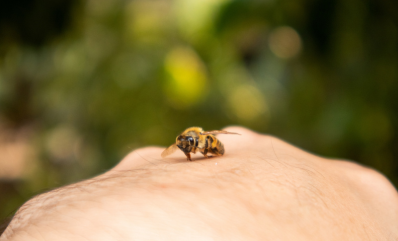
Published: December 4, 2023
With the arrival of warm weather, the presence of bees and other stinging insects increases. These insect stings can not only be painful but also cause severe allergic reactions. Fortunately, there are treatments available for allergies to insect stings.
What stinging insects are known to cause allergic reactions?
- Yellow jackets
- Hornets
- Wasps
- Honeybees
- Imported Fire Ants
How to identify the stinging insect?
Insect stings are very common, with up to 94% of adults in the US reporting being stung at least once.
What are the symptoms of an allergic reaction to stinging insects?
Reactions can be local (redness, swelling, itching) or systemic (itching, hives, nausea, diarrhea, wheezing, fainting). About 10% of the US population have large local reactions, and approximately 3% have systemic reactions.
How do you test for allergy to insect stings?
- Skin prick testing
- Blood tests
What is the treatment for insect sting allergy?
- Minimize risk (wear protective clothing, avoid picnic areas, be careful with open containers outside)
- Carry an epinephrine autoinjector if appropriate
- Venom Immunotherapy (allergy shots for insect stings), recommended for patients with a history of anaphylaxis to insect stings, reducing the risk of a systemic reaction from a future sting to 5%
If you have a history of possible allergic reactions to insect stings or any questions, please contact our office.